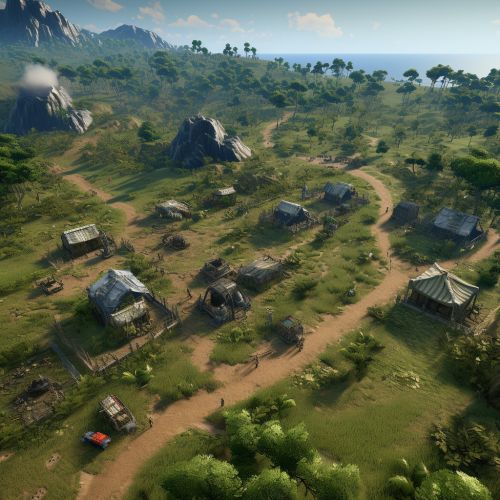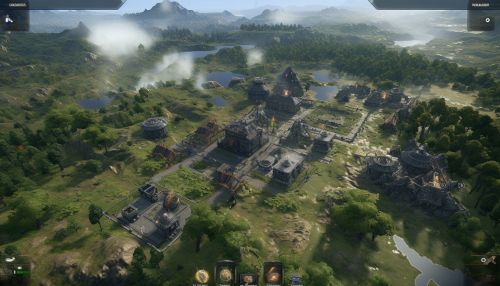Real-time strategy
Overview
Real-time strategy (RTS) is a sub-genre of strategy video games that does not progress incrementally in turns. This genre is characterized by the simultaneous action of all players, making the gameplay continuous rather than broken up into turns. The term "real-time" refers to the fact that the game is constantly moving forward, with events happening in real time, as opposed to being turn-based.


Gameplay
In a real-time strategy game, players are often tasked with gathering resources, building bases, researching technologies, and creating combat units. The objective is typically to destroy the opponents' units and bases, while protecting one's own. The player's ability to make decisions and react quickly is crucial, as the game's state can change rapidly.
Resource Management
Resource management is a key aspect of real-time strategy games. Players must gather resources, such as minerals, energy, or currency, to fund the construction of buildings and the creation of units. Efficient resource management can provide a significant advantage, allowing players to build larger armies or advance technologically faster than their opponents.
Base Building
Base building is another fundamental element of real-time strategy games. Players construct various types of buildings, each with its own function. For example, resource gathering buildings (like mines or farms), unit production buildings (like barracks or factories), and research buildings (like laboratories or academies). The strategic placement of these buildings can impact the efficiency of the player's base and the effectiveness of their defenses.
Unit Production
The production of units is a critical aspect of real-time strategy games. Units can be broadly categorized into combat units and non-combat units. Combat units are used for attacking enemy forces and defending the player's base. Non-combat units, often referred to as "workers", are used for gathering resources, constructing buildings, and performing other non-combat tasks.
Technology Research
Technology research is a common feature in real-time strategy games. By investing resources into research, players can unlock new units, improve existing units, and gain access to new abilities. The choice of what to research and when is a strategic decision that can significantly impact the outcome of the game.
History
The history of real-time strategy games can be traced back to the 1980s, with games like Dune II and Warcraft: Orcs & Humans being among the first to popularize the genre. The 1990s saw the release of several influential real-time strategy games, such as Command & Conquer, Age of Empires, and StarCraft, which further defined and expanded the genre.
Impact and Influence
Real-time strategy games have had a significant impact on the video game industry. They have influenced the design of other genres, such as multiplayer online battle arenas (MOBAs) and tower defense games. Additionally, real-time strategy games have been instrumental in the growth of esports, with games like StarCraft being among the first to be played competitively at a high level.
